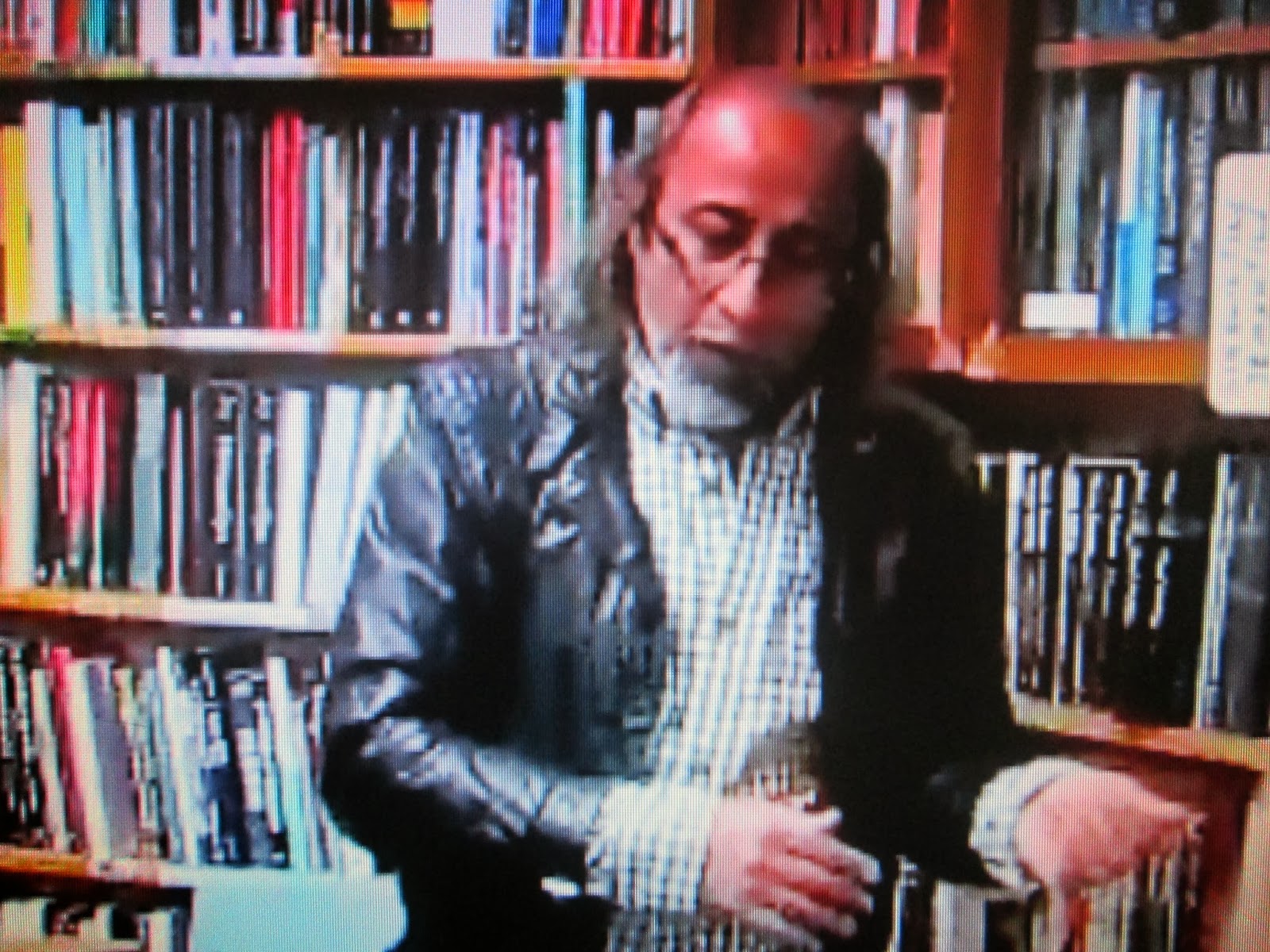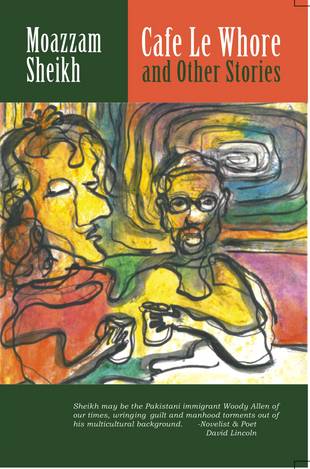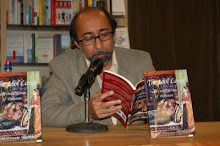As my boy started kindergarten last week, I suddenly learned I had more time, not only during the day but at night as well because he had to start sleeping early. That resulted in allowing me the luxury to watch a film from start to end - if not in one go, then two, three, perhaps four?
That leads me to confess having watched, among others,
De battre mon coeur s'est arrêté (2005) last week. Although I tend to get tired of French New Wave too often getting itself caught between the teeth and sprockets of the redundant noirish crap, most of the French cinema that I have watched - the export material - ends up redeeming itself due to their superior, highly developed filmmaking aesthetic: intellectually, philosophically and artistically.

It's quite fair to say that Jacques Audiard tweaks a remarkable performance out of Romain Duris, however, I think what raises the impact of the movie is the acting of side and small characters who loan their luminosity to one or two lead performances. This is one aspect where Indian and Pakistani cinema is more or less still in the dark ages.
Cinematography by Stéphane Fontaine is extremely effective as it manipulates dark spaces in frame and life outside the frame. The movie has received 'well-deserved' acclaim and awards, one would think. Before I launch into my critique of the film, it is fair to mention the French version is loosely based on
Fingers (1978), an American film directed by James Toback where the lead role is played by Harvey Keitel.
While watching the film i had the uncanny feeling of Romain Duris trying to develop a slightly cooler, more sophisticated, French version of De Niro. His smirks were a give away. As I read up stuff on the film, I also remembered reading about the agony Harvey Keitel went through when roles he thought he deserved kept on going to De Niro. Exceptions not withstanding, subtlety and nuance are not american cinema traits and therein lies the a problem I have with
De battre mon coeur s'est arrêté as well.
As sophisticated as French cinema has managed to stay, their obsession with the dark side of human nature is a kind of pathology that has struck deep roots. I feel it results from the disorientation caused by the trauma from their colonial experience. The French New Wave cinema appears to be at a peculiar unease to reconcile a sense of cultural and artistic sophistication with the kind of savagery racism and colonial enterprise unleashed. (In this context, highly recommended French film
Cache is a must see. One can add Godard's
Le Petit Soldad too to the list.)
Within the Oriental discourse one can be a savage and noble (we know!) - but can one be savage and civilized? Hence the unease, the disorientation. Unlike the pre-New Wave cinema where orientalism might have gotten the better of a filmmaker's voyeuristic imagination ( think of
Pepe la Moko) and the word casbah is where non-Western chaos sucks the French hero in, the new cinema located the chaos within. No need to go to Casablanca, sir, the Parisian heart is the jungle! (This discussion brings Kurosawa's cinema to mind, especially his
Bad Sleep Well.)
Our hero is torn between two extremes: one, a job that requires physical violence, enacted in France, but, as fast-moving, unstable, barely-lit and grainy shots reveal, upon the hapless, poor, probably immigrant, mostly non-White people. Removing people from their land was a regular colonial practice, carried out in the name of progress but for purposes relating to economics: stealing of resources, profiteering and greed.
Two, our young and cool protagonist's past as a promising piano player (note: think of
On the Waterfront and the choices Brando's been made to make: a top-class artist of fist-n-feint and a thug, a could've been and nothin'.)
The first choice is influenced by the father, involved in the dirty (under)world of real estate business. The second choice is influenced by the mother (which can be read as Mother Europe/France/Renaissance - in essence, soul/heart of the West.)

This buffoonery of cardboard dichotomy of pitting (imagined) soul against the rational/heartless mind of Europe (
how romantic!) is quite common in Western literature as well. Ian McEwen's Atonement, for example, maps that quite well.
This brings me to Audiard's careless choice(s) of the Chinese (
read mother) piano instructor and the dangerous Russian (
read father) scumbag. In an interesting equalizing effect, the young Chinese instructor steps into the hero's deceased mother's shoes. On the other hand, the Russian mafia-like figure has the father killed. Oedipus complex? In a nutshell, narrative is the triumph of Mother Europe over Father Europe. In an important scene our hero has a chance of revenging his father's murder by killing the Russian thug, but our true Frenchman, under the influence of Western classical music, takes the high road and decides to spare the bullet and let's the bleeding, unconscious Russian live.
There are different ways of making sense of the Chinese instructor's character. A good director is not a careless director. It is evident, after reading interviews with Audiard, how much attention he gives to each and every aspect of the frame, which film stock to use, whether to bring out the red in the female characters' faces or green in the interior and so on. With all the pros and cons stacked up, in the end it is a positive choice: to have a non-White character in an important role with some measure of agency and complexity to the character, even if its main purpose is to further the idea of mission civilisatrice. Not in the colonies (since they are gone. Remember Vietnam?) But via brain drain.
However the choice of the Russian tycoon makes no sense. Rather it is disturbing, almost racist. This is not a stupid cold war movie, nor does this choice have anything to do with Existentialism or Noirish demons. For all I know, the director could've used an Arab, an Israeli, a Bhutanese, an Australian. Destroying a stereotype is not the same as creating a stereotype. It is not a film about underground crime world of Paris, nor is it a dissection of who or which ethnicity has come to control the real estate business. The incidental choice of the Russian is akin to the racism of
Back To the Future where Libyans are trying to steal nuclear information. (For a taste of the reverse, try to see the Turkish movie
Valley of the Wolves .)
Of course, it would've been a different thing had the Russian tycoon's character been developed and grounded in the story. Such an important character has been reduced to two short scenes, one comical, one bloody, both strawmen situations. One is forced to wonder whether Russians are controlling French economy or responsible for every murder. Were the Russians behind the recent race riots? Is Audiard punishing Russians for Pushkin ditching French in favor his native tongue? Our hero's crooked and greedy father has tried to invest money in partnership with the Russian. The deal falls through and the father wants his money back. The Russian being a Russian won't give it back and it's a big sum. He wants to know if his son has the balls to strong arm the Russian. The son learns the Russian is too big and advises his father to forget the money, lick his loss and move on. Then in one scene, our hero enters his father's apartment only to discover his father's gruesome murder.

It would've remained believable, and a decent film, if the narrative had ended with the money gone but no murder, leading to no need for the final grand clash between good and evil, good taking the high road. Even in this muddied scenario, there are intelligent choices Audiard has made such as when our hero enters the music hall and takes his seat - as the Chinese instructor gives her concert - in bloodied shirt, face and hands, hinting at the intricacy of art and violence. But the choice of the Russian has no defense. It is a poor and bigoted choice.
Audiard has talked about the philosophy of "the slanted" in art, as opposed to level floor. But his choices of the Chinese who's all virtue and the Russian who's all evil seem to have rendered the many slanted things in the movie overshadowed by a disorienting see-saw effect.
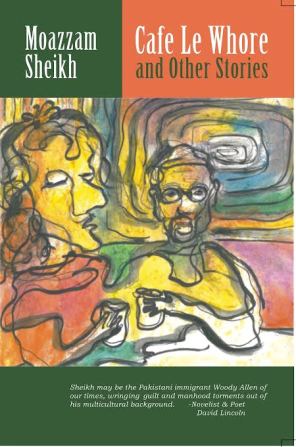 The cover of Cafe Le Whore and other Stories, Moazzam Sheikh’s new collection, his second one, appears to evoke the lead story. It is replete with bright haunting colours but still strikes an elusive tone, almost like the narrator’s repeated encounters with his dead mother in a city cafe and his later frustrated search for her, intertwined with his meetings with a down and out whore.
The cover of Cafe Le Whore and other Stories, Moazzam Sheikh’s new collection, his second one, appears to evoke the lead story. It is replete with bright haunting colours but still strikes an elusive tone, almost like the narrator’s repeated encounters with his dead mother in a city cafe and his later frustrated search for her, intertwined with his meetings with a down and out whore.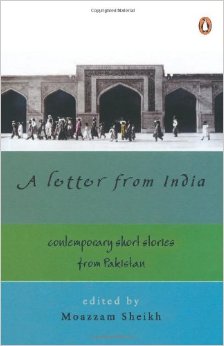 A short story for the most part has a lineage, not in just what it says but even in how it is written, and because an explanation for why I wrote a blurb for this intriguing, wonderful and hard to place collection must be convincing, it must begin with some of Moazzam Sheikh’s translated stories in A Letter from India (Penguin 2004).
A short story for the most part has a lineage, not in just what it says but even in how it is written, and because an explanation for why I wrote a blurb for this intriguing, wonderful and hard to place collection must be convincing, it must begin with some of Moazzam Sheikh’s translated stories in A Letter from India (Penguin 2004).










